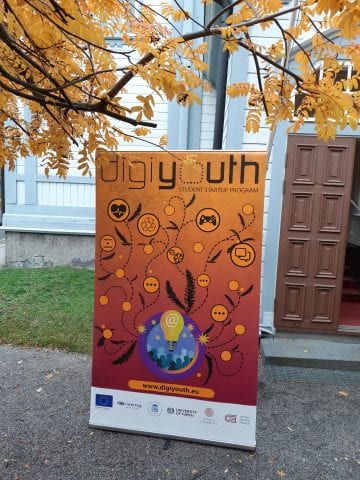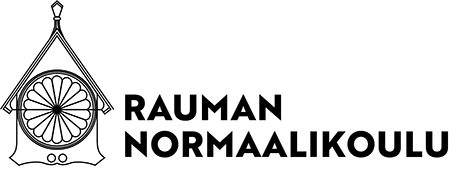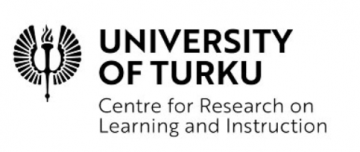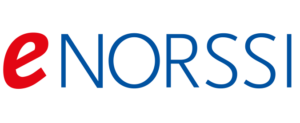TutKoKe (Research, Experimentation and Development)- projects
The school of the future is developed at teacher training schools

“From a free people to free science” is the motto of our own university, which is why science and development are an integral part of the activities of the teacher training school. The staff keeps their knowledge up to date, develops themselves, conducts experiments, and inspires teacher trainees to develop their own work.
Rauma Teacher Training School is an active player in the national teacher training school network (which is known as eNorssi in Finnish). eNorssi works to further the development of learning, teaching, education, and research by conducting research, experimenting, and continuing development (known as TutKoKe in Finnish which refers to tutkimus, kokeilu ja kehittämistoiminta) and, also by sharing expertise. Each teacher training school has its own TutKoKe group.
We can cooperate on research at different scales and levels. It is valuable to develop one’s own work, to experiment with new methods and practices, and to create attractive learning environments, which also emphasizes the involvement of pupils. Experimentation can lead to new insight, development projects can be the beginning of a new operating culture, and research can point the school, learning, teaching, and education in the right direction.
If you are interested in one of our development projects, please contact us by email:
Rauma and Turku Teacher Training Schools have a joint blog with information about development projects.
Sirius is the eNorssi network magazine and presents research, experimentation, and development in teacher training schools.
We develop together
We have partnership with Centre for Research on Learning and Instruction CERLI. View CERLI
The national teacher training school network eNorssi is very important for us. View eNorssi
Think – question – be inspired
Development projects in our school
Rauma Teacher Training School works to develop and experiment! There are various development projects throughout the school, classes, groups of pupils and amongst the staff.
Teacher training school experimentation and development activities
- Drama class as part of schoolwork is related to the development of the school’s operating culture. The refurbished space has been designed to suit drama work and it is hoped that it will inspire all teachers to use drama in their teaching.
- Drama education methods in class grouping and class management are part of experimentation and development in one class.
- Meaningful learning methods in mathematics and the promotion of self-guidance skills are teacher-specific development activities that utilize technology.
- Developing teaching methods in Swedish language teaching is a development activity for one language teacher.
- The emotional skills, strengths, and growth of self-knowledge in pupils, teachers and trainees is preliminary research that one teacher is experimenting with.
- The development of children’s reading and reading as a hobby is carried out in different classes in various forms of research, experimentation, and development.
- Creating multidisciplinary modules and integrating subjects is development through the cooperation of subject teachers.
- OneNote as a tool for teaching and teacher collaboration is experimentation, development, and collaboration with other teachers.
- The garden as a learning environment is long-term development carried out by many teachers.
- Beekeeping and entrepreneurship are part of experimentation in one teacher’s class.
There are several working groups at the school that are responsible for development.
- Research, experimentation, and development activities are planned by the TutKoKe group.
- Continuing education is developed by the continuing education group.
- Teacher training and guidance is developed by the training planning group.
- Development and learning environments of ICT (Information and Communication Technologies) are developed by the ICT group.
- Well-being at work is developed by the TYHY-group.
- Cooperation between teachers is developed in subject specific groups.
- Security is developed by the security group.
If you are interested in any of our development projects, please contact us by email:
National projects or other partnership projects
UNESCO cooperation in eNorssi
Teacher training schools have a regional and national network for UNESCO cooperation. UNESCO activities are strengthened by sharing knowledge and experience.
Contact person: Mia Koivuniemi
View eNorssi UNESCO school activities
Developing safety
The development of safety began through internal development of the school. Expansion occurred through the safety network of the Regional State Administrative Agency and, along with the development of safety by the Rauma Teacher Training unit, has been a cooperative project. Models and examples of safety work will be disseminated to other schools.
Contact person: Tuija Saarivirta
Tutor teacher
The tutor teacher project strengthens teachers’ digital skills. Support can be provided in practical situations at the workplace.
Contact person: Juha Ståhlberg
International projects
European healthy schools network
The Schools for Health in Europe (SHE) network, established in the 1990s, includes more than 30 countries.
In Finland, the network operates under the name of Healthy Schools in Europe. The WHO directs the activities and the aim is to promote the health of the school community.
The network shares expertise between different countries and schools also participate in the network’s research and development projects. From Finland, the research network includes the University of Eastern Finland.
Contact persons: Anna-Maija Katajisto and Tuija Saarivirta
International UNESCO cooperation
The national UNESCO teacher training school network with the UNESCO headquarters in Paris.
Contact person: Mia Koivuniemi
Harkaway Primary School yhteistyö
Rauma Teacher Training School students are in contact with Australian schoolchildren in different ways and cooperation is continually evolving.
Contact person: Maarit Rainio
Lady Barnhouse School cooperation
Cooperation that is focused on correspondence between pupils with coordination done by teachers in both countries.
Contact person: Kirsi Urmson
Beginning cooperation with JPDE (Jiangsu Provincial Department of Education) in China
Possible friendship school or friendship classes starting.
Contact person: Anna-Maija Katajisto
Completed projects
DigiYouth
DigiYouth project aims to develop the entrepreneurship and cross-border cooperation skills of Estonian, Finnish, Latvian and Swedish youth (age 14–19) by supporting the creation and activities of start-up type student companies with focus on digital products, services and solutions.
- From each country 2-5 general education schools, teacher teams and a network of mentors will be engaged. Student companies generate IDEAs and develop business plans, develop their product/service into PROTOTYPEs, and engage in marketing and SALES.
- Students are mentored by practitioners and work with learning and gaming solutions; 3D,
visual programming; robotics; low+high tech art and craft; mobile apps; hardware programming and IoT; communication solutions and digitally supported services.
Partners: The project was led by the University of Tartu, the Centre of Educational Innovation and Finnish partners were the Teacher Training Unit of University of Turku in Rauma (OKL), Rauma Teacher Training School, Rauma Lyseo High School, and Merikarvia High School
Contact: Marja-Tervaselkä-Jalonen. Ramona Raynor-Karjalainen and Juha Ståhlberg were also involved in the project.
Think Globally-Act Locally
The international project involved pupils in exploring internationality both from a local and international perspective. Pupils were directed to appreciate different languages, the speakers of those languages and cultures. Cooperation was carried out with different countries using information technology and global networks.
Maarit Rainio has acted as the project director.
You can read more about the project on the website, where you can find more information and get tips and ideas for international education.
https://mrathinkgloballyactlocally.blogspot.com/
https://mrathinkgloballyactlocally.blogspot.com/p/hanke-paattyy.html
Steamok
The aim has been to develop an approach based on multidisciplinary learning models in which learners’ approach sustainable development goals through STEAM (Science, Technology, Engineering, Arts, Mathematics) thinking. Teams of pupils chose a real-world problem from the UN’s Sustainable Development Goals, and they created innovative solutions.
The Finnish National Agency for Education has partially funded the project. Rauma Teacher Training School has served as a pilot school. Contact persons in Rauma Teacher Training School: Elina Perälä and Mia Koivuniemi
Innokomp
The aim has been to develop pedagogical practices that recognize different types of learners and reform handicraft teaching and learning so that it promotes equality, both for basic education and teacher training.
The project revised handicraft teaching in a way that supported the development of student innovation, utilized digital modelling, and promoted the multi-materiality of handicrafts. New operating models were piloted in university partner schools.
The Ministry of Education and Culture partially funded the project under the project leadership of Professor Eila Lindfors. The project is coordinated by the handicraft teacher training at the Rauma campus as partners in handicraft teacher training at the University of Helsinki, the University of Eastern Finland, and Åbo Akademi University. Rauma Teacher Training School has served as a pilot school. Contact persons at the teacher training school: Sampsa Kullas and Marja Tervaselkä-Jalonen.
More information about the project:
ACTS -Assesment Companion for Thinking Skills
The aim of the project has been to develop, in international cooperation with Latvian and English researchers, assessment tools that teachers can apply to assess the development of the thinking skills of pupils of different ages. Finnish participants developed tools that are also suitable for pupils’ self-assessment. Universities supported the project by conducting research.
Participants: University of Turku, Department or teacher education in Rauma and Rauma Teacher Training School and Eura Kirkonkylä School in Finland. In Latvia, TA Group; Daugavpils Russian Lyceum. United Kingdom: Lincoln University.
Let’s think Forum
- An assessment tool that groups of teachers can learn to use
- An assessment tool that groups of teachers can learn to use
- An assessment tool for teachers who want to recognize and progress thinking in their pupils
- ACTS is a tool that consists of instruments – like multi-modal analysis and lesson study, for example – that help teachers assess thinking skills and move their pupils forward in their ability to think effectively
- ACTS is based on appropriate research methodological approaches
- ACTS is underpinned by accepted theories (based on work by Vygotsky, Kolb, Piaget etc).
Supported by the Erasmus+ programme of the European Union.
Contact person at the teacher training school: Kirsi Urmson. Hilppa Jankama, Merja Toivanen, Ramona Raynor-Karjalainen, Juli Aerila (OKL) were also involved in the project.
More information about the project:
SMART Learning -Nordplus-projekti
(Study Materials as Resources for Thinking-based Learning)
Teachers in different countries developed student assignments and materials that support thinking skills using the TA Thinking Approach theory (www.ta-teachers.eu).
Teacher trainees were directed to use tasks that support thinking skills in teaching. Continuing education courses related to teaching using thinking skills were organized.
Involved in the project: Kirsi Urmson, Merja Toivanen, Ramona Raynor-Karjalainen and Hilppa Jankama.
Ytimessä (At the core) – books are at the heart of all learning
Rauma, Turku, and Joensuu Teacher Training Schools participated in the project. The project was part of the IKI-TARU project.
The Ytimessä (At the Core) project developed ways to inspire pupils of comprehensive school age to be inspired to read both in school and in their free time. Not only the pupils themselves but the pupil’s close friends and family were also inspired to read as a hobby. The culture of reading was extended beyond traditional Finnish (as a native language) and literature classes and hobby groups were also utilized.
The Finnish National Agency for Education has partially funded the project. The Rauma Teacher Training School has been the project leader and a book about the project titled Ytimessä has been published.
The project director has been Eeva-Maija Niinistö and the project coordinator has been Suvi Sario.
Discover the IKI-TARU project package
Development of assessment skills of teachers during their career
The aim was to train teachers regionally regarding updated assessment. Comparable training was carried out nationally as three training modules. The participants carried out a development task related to the evaluation. The project was carried out in cooperation with the Finnish National Agency for Education, the Regional State Administrative Agencies, Karvi (Finnish Education Evaluation Centre), and teacher training schools.
The National Agency for Education has partially funded the project. The Regional State Administrative Agencies supported the practical arrangements and managed the information. The University of Helsinki’s Viiki Teacher Training School managed the project, and the project leader was Ulla Ilomäki-Keisala. Teachers from different training schools were responsible for regionally organized training. In Rauma, the trainers were Anna-Maija Katajisto, Kristiina Pärkö, and Tuija Saarivirta.
Photo: Ramona Raynor-Karjalainen


